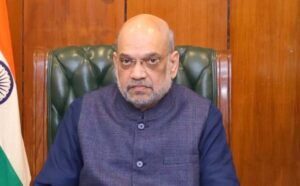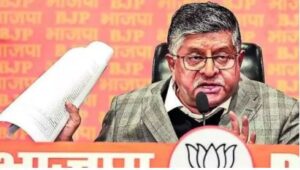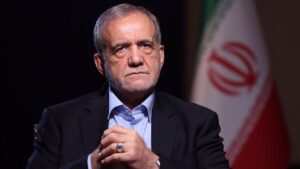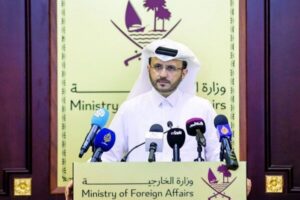India China discuss next steps in ties following disengagement process in Eastern Ladakh
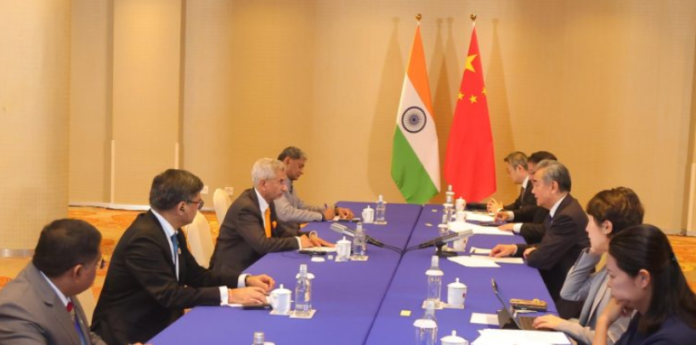
New Delhi : Rio de Janeiro, Nov 19 External Affairs Minister S Jaishankar and his Chinese counterpart Wang Yi deliberated on the next steps in India-China ties at a meeting in Rio de Janeiro, in the first high-level engagement since the militaries of the two sides disengaged from Demchok and Depsang in eastern Ladakh.
Jaishankar and Wang held the delegation-level talks on the sidelines of the G20 Summit late on Monday.
In a post on ‘X’, the external affairs minister said both sides noted the progress in the recent disengagement of the border areas and exchanged views on the next steps in the bilateral ties.
It is learnt that both sides are in the process of reviving various dialogue mechanisms including the special representatives talks on the boundary question as decided at a meeting between Prime Minister Narendra Modi and Chinese President Xi Jinping in the Russian city of Kazan last month.
Days after the two sides reached an agreement on October 21 on disengagement in Demchok and Depsang, Indian and Chinese militaries completed the process marking a virtual end to over four-year standoff in the two friction points.
The two sides also resumed patrolling activities in these areas after a gap of almost four-and-a-half years.
“On the sidelines of the G20 Summit in Rio, met CPC Politburo member and FM Wang Yi of China,” Jaishankar said.
“We noted the progress in the recent disengagement in the India-China border areas. And exchanged views on the next steps in our bilateral ties.
“Also discussed the global situation,” he said.
In his opening remarks at the talks, Jaishankar referred to the meeting between Modi and Xi on October 23 on the sidelines of the BRICS summit.
“In Kazan, our leaders reached a consensus on taking the next steps in our relationship, bearing in mind the understanding of October 21. I am glad to note that on the ground, the implementation of that understanding has proceeded as planned,” he said.
“Our leaders have directed that the Foreign Ministers and the Special Representatives should meet at an early date. Some progress, some discussions have happened in that direction,” he said.
In the meeting, Jaishankar and Wang discussed the next steps.
The external affairs minister also noted the importance of India-China ties in his remarks.
“First of all let me say it is very good to meet on the sidelines of the G20. We saw each other recently on the sidelines of the BRICS as you noted.
“And our contribution to both platforms was notable in shaping the eventual outcomes,” he said.
“But it was a reminder to us of the importance of our two countries in international politics. It was also an equally significant testimony of why our bilateral relations are so important,” he added.
People familiar with the latest developments in India-China relations said the Special Representative dialogue will be the next significant forward movement.
India’s Special Representative for the dialogue is NSA Ajit Doval while the Chinese side is headed at the talks by Foreign Minister Wang.
After the completion of disengagement, Indian and the Chinese militaries are carrying out one round of patrolling each in Depsang and Demchok, people familiar with the matter said.
At the same time, they said the two sides have maintained their deployment of troops along the LAC and the focus now will be on de-escalation of the overall situation.
Each side currently has around 50,000 to 60,000 troops along the LAC in the region.
Talks at multiple levels are underway towards de-escalation, the people said.
After India and China reached the agreement on October 21 for disengagement in Depsang and Demchok, Army Chief Gen Upendra Dwivedi said the Indian military is trying to restore “trust” and both sides will have to “reassure each other” to achieve this objective.
Two days after the pact was sealed, Modi and Xi held talks in the Russian city of Kazan.
The two leaders endorsed the agreement on patrolling and disengagement and issued directions to revive various bilateral dialogue mechanisms, signalling attempts to normalise ties.
In the nearly 50-minute meeting held on the sidelines of the BRICS summit, Modi underscored the importance of properly handling differences and disputes and not allowing them to disturb peace and tranquility in border areas.
The prime minister said mutual trust, mutual respect and mutual sensitivity should remain the basis of the relations.
India has been maintaining that its ties with China cannot be normal unless there is peace in the border areas.
In an address at an event on Saturday in Delhi, Jaishankar said the disengagement part of the “problem” with China along the Line of Actual Control (LAC) in eastern Ladakh has been put to rest and the focus should now be on de-escalation.
It is “reasonable” to expect some improvement in the relations following the final round of disengagement, he said but hesitated to say that there could be a reset of ties.
The eastern Ladakh border standoff erupted on May 5, 2020, following a violent clash in the Pangong Lake area.


